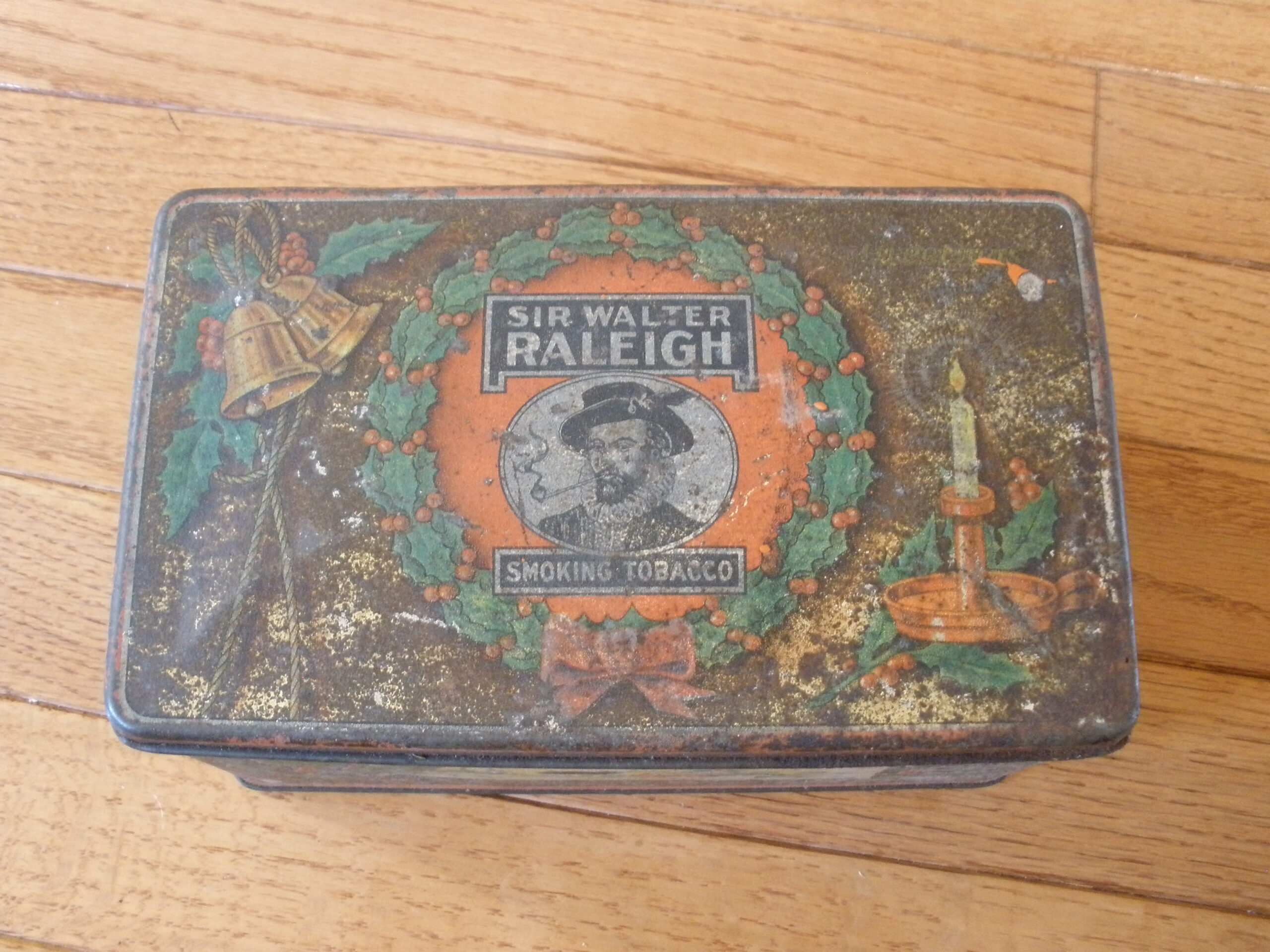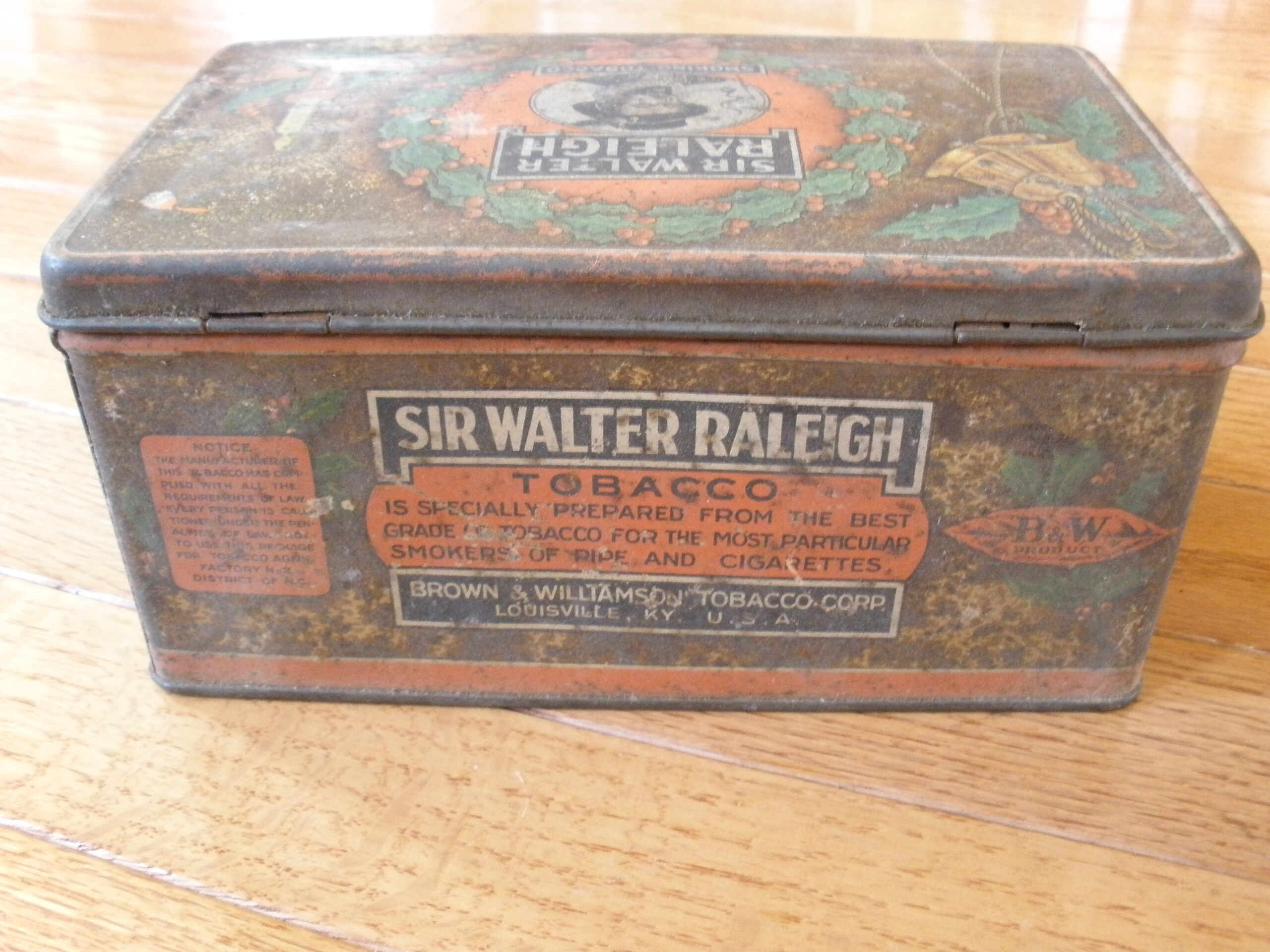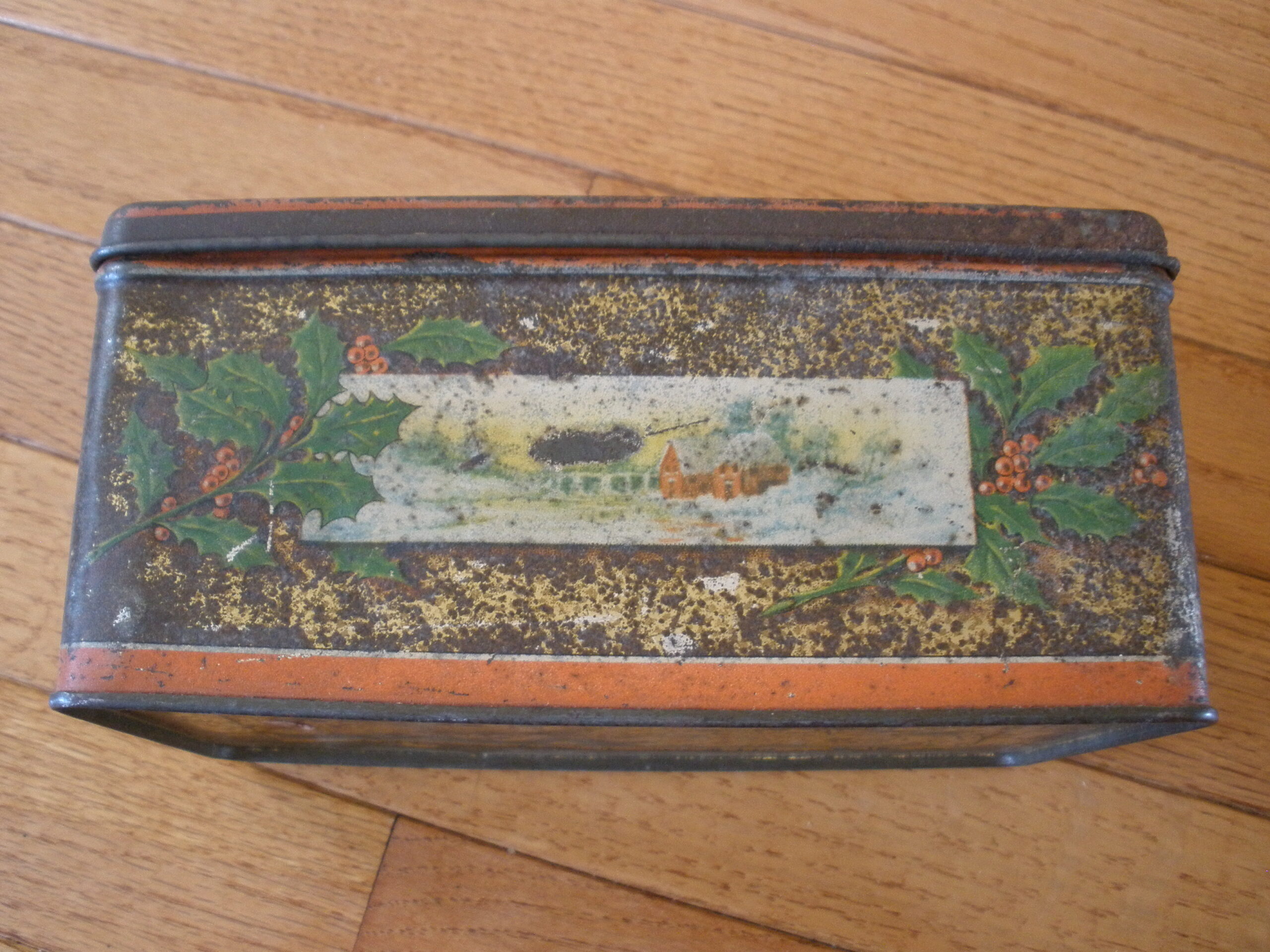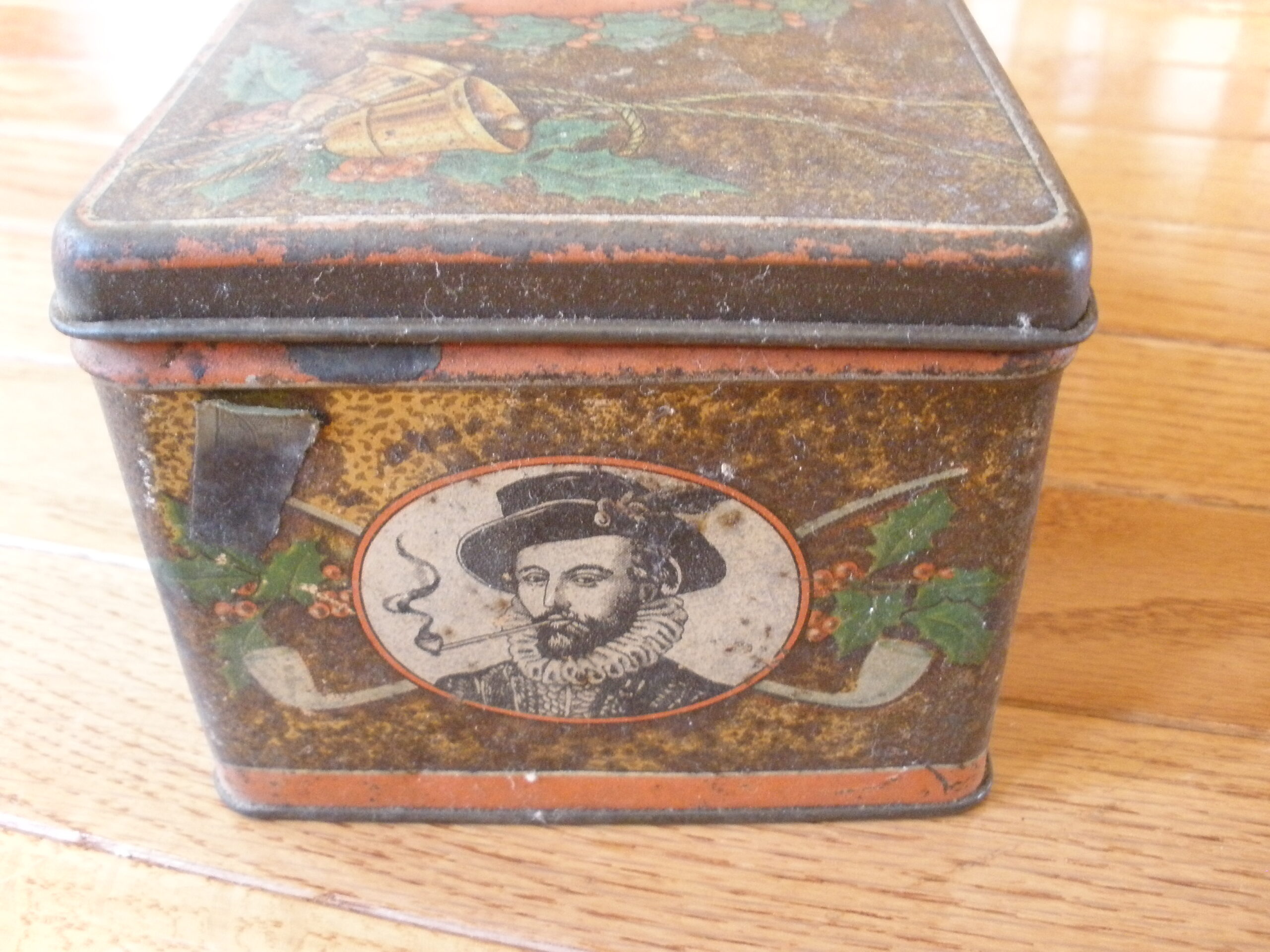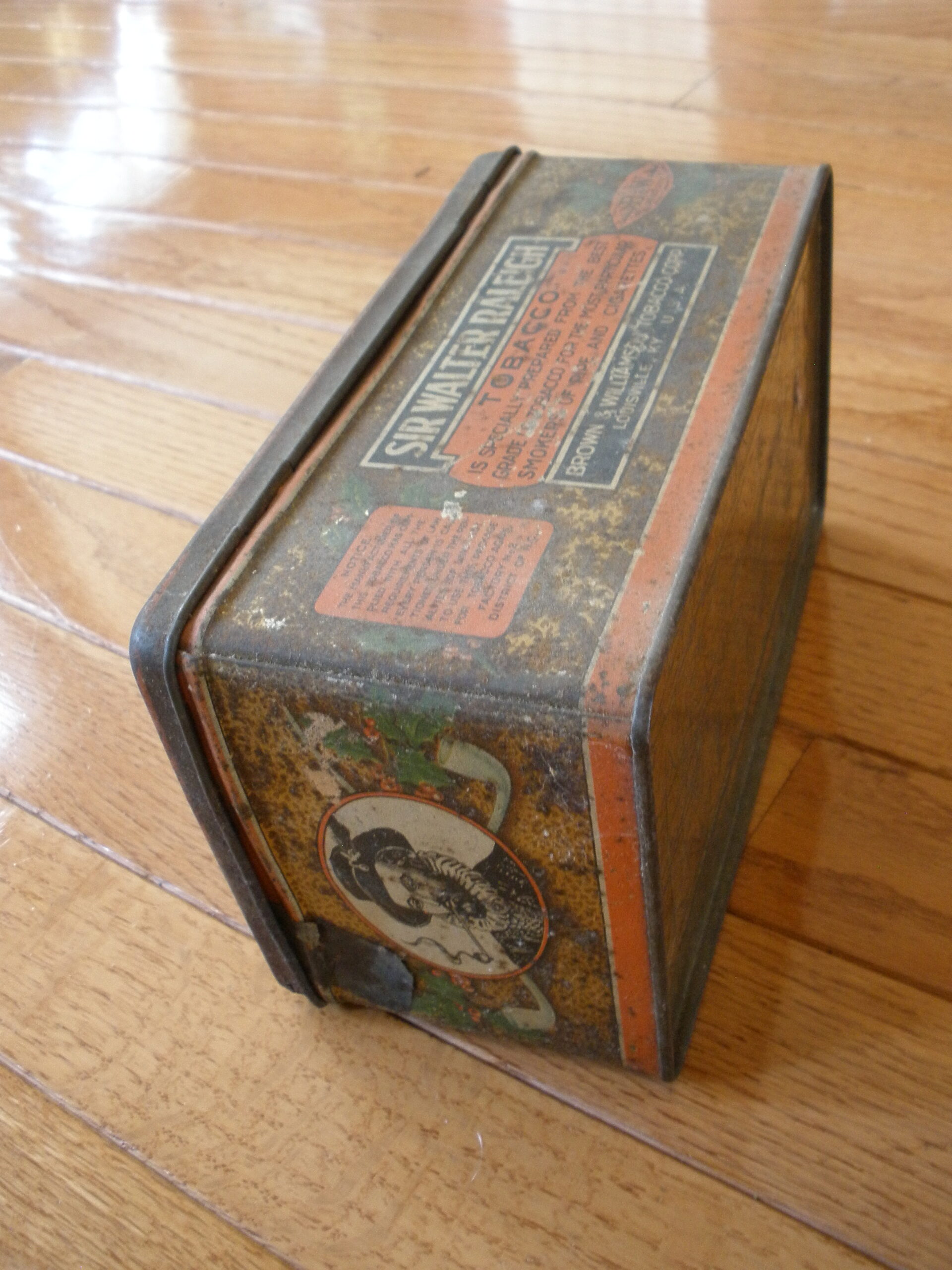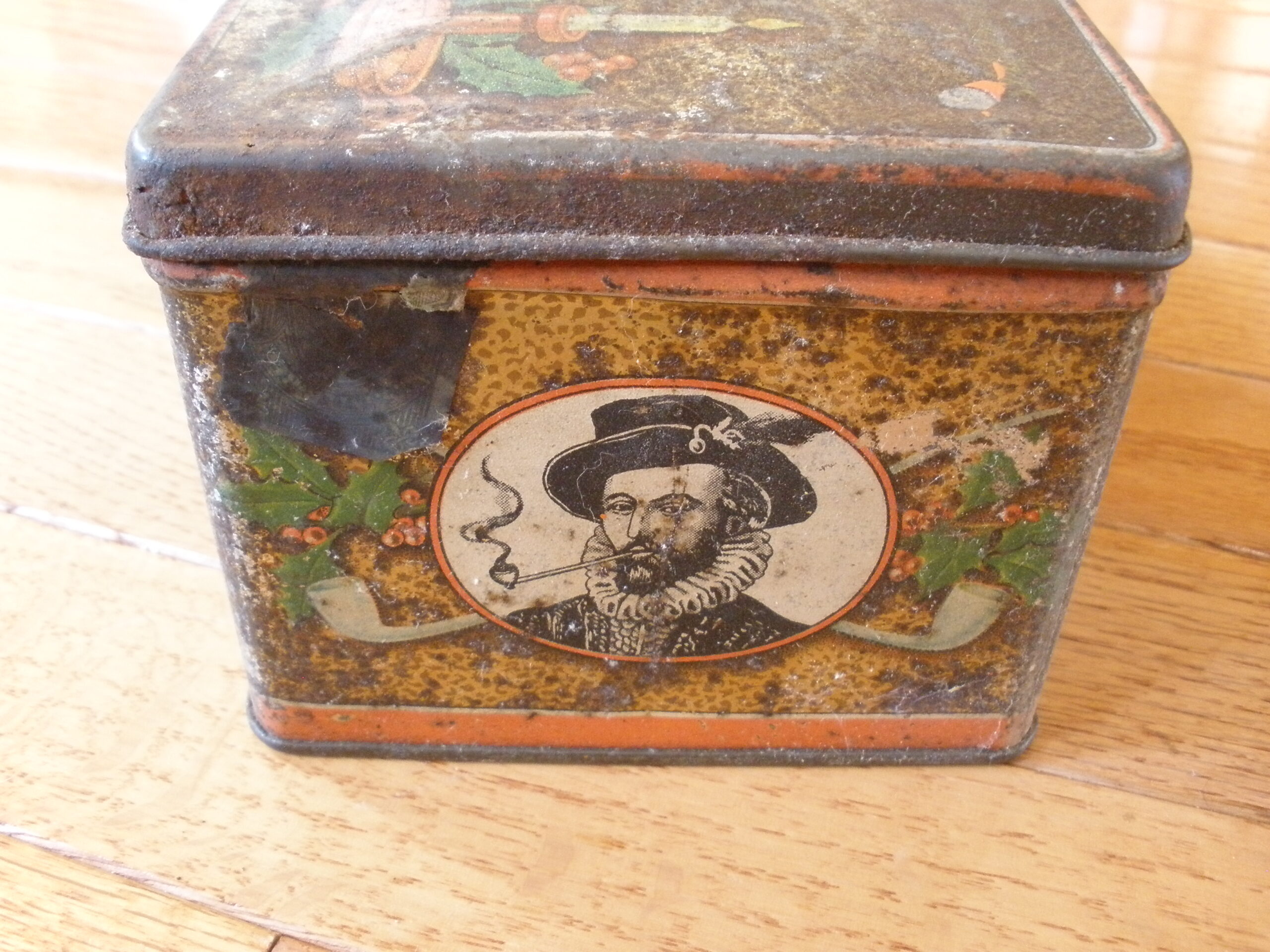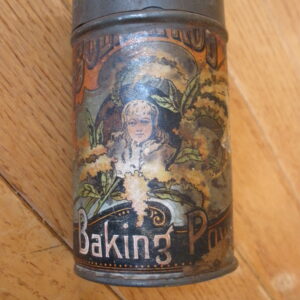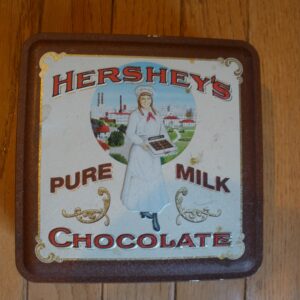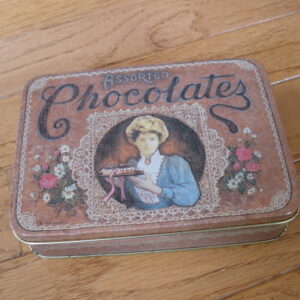For sale is a 1930s SIR RALEIGH CHRISTMAS TOBACCO TIN made by Brown & Williamson Tobacco Corporation, Louisville, Kentucky. This well worn vintage tin with a hinged lid is elaborately decorated with Holly & Bells, and a country cottage in a snowy landscape. Tin measures 7 1/2 inches, by 4 1/2 inches wide, by 3 1/2 inches tall.
This 14 ounce size, lithographic tin includes its original top and a government tx stamp that includes a January 26, 1926 date. The tin also includes a separate stamp on the side to verify that the tobacco product was made by workers belonging to the Tobacco Workers International Union (Union Made Stamp). The tin features the iconic sir Walter Raleigh logo and the slogan “Sooner or later – your favorite tobacco”. The tin measures 5 1/4 inches diameter and stands 4 3/4 inches tall. A great Tobacciana collectible.
Brown & Williamson was founded in Winston (today’s Winston-Salem), North Carolina, as a partnership of George T. Brown and his brother-in-law Robert Lynn Williamson, whose father was already operating two chewing tobacco manufacturing facilities. In February 1894, the new company, calling itself Brown & Williamson, hired 30 workers and began manufacturing in a leased facility. In 1927, the Brown and Williamson families sold the business to London-based British American Tobacco. The business was reorganized as the Brown & Williamson Tobacco Corporation. The company became infamous as the focus of investigations for chemically enhancing the addictiveness of cigarettes. Its former vice-president of research and development, Jeffrey Wigand, was the whistleblower in an investigation conducted by CBS news program 60 Minutes, an event that was dramatized in the film The Insider. Wigand claimed that B&W had introduced chemicals such as ammonia into cigarettes to increase nicotine delivery and increase addictiveness.
The Tobacco Workers International Union, founded in 1895, fought to end the use of child labor in the tobacco industry, and to improve working conditions. Working conditions in tobacco factories of Richmond, Virginia were very poor in the 1920s and 1930s, with two writers stating that conditions had “changed very little since the days of slavery.

